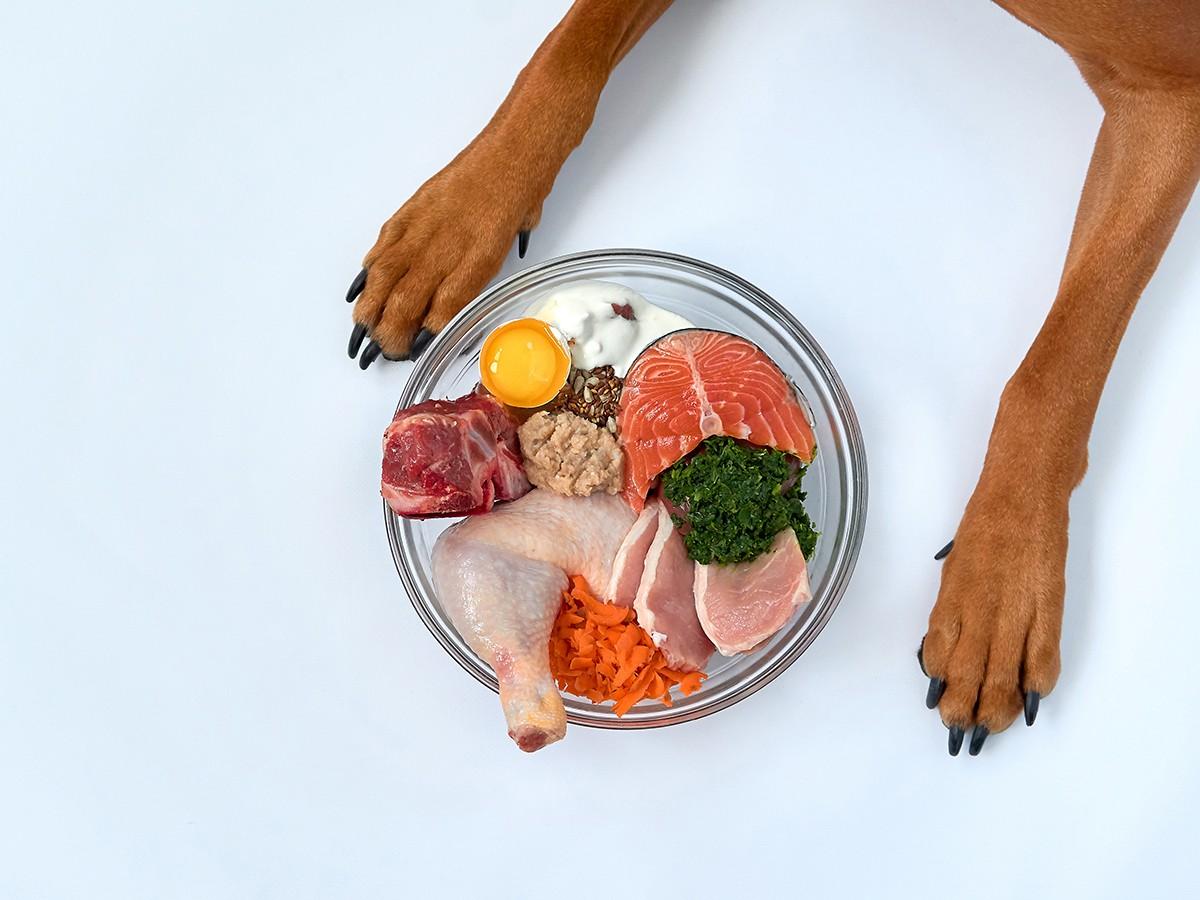In the ever-evolving landscape of pet care, fresh dog food has emerged as a popular alternative to traditional kibble and canned food, captivating the attention of pet owners with its promise of a healthier, more natural diet for their canine companions. But before making the switch to this seemingly enticing option, it's crucial to delve into the intricacies of fresh dog food, understanding both its potential benefits and potential drawbacks. This comprehensive guide will equip you with the knowledge necessary to make an informed decision for your beloved furry friend.
What is fresh dog food?
Fresh dog food, as the name suggests, is prepared using whole, unprocessed ingredients, typically including meat, vegetables, and fruits, which may be cooked or served raw. Unlike traditional kibble and canned food, which undergo extensive processing and often contain a multitude of artificial ingredients, fresh dog food boasts a simpler, more natural composition.
Is fresh dog food good for dogs?
Proponents of fresh dog food extol its potential benefits, which can include:
Enhanced Nutrient Content: Fresh dog food, due to its minimal processing and emphasis on whole ingredients, often retains a higher concentration of nutrients, including vitamins, minerals, and enzymes, compared to traditional kibble and canned food.1 This nutrient-rich composition is believed to promote overall health and well-being in dogs.
Improved Digestive Health: The whole ingredients in fresh dog food may be more easily digestible for dogs, leading to better nutrient absorption and overall digestive health.2 This can manifest in reduced digestive issues, such as gas, bloating, and diarrhea.
Enhanced Skin and Coat Health: The nutrient-rich composition of fresh dog food, along with the absence of artificial ingredients, is often credited with contributing to a healthier skin and coat in dogs.3This can be evident in reduced itching, flaking, and overall coat shine.
Reduced Allergy Risk: For dogs with food sensitivities, fresh dog food prepared with limited-ingredient formulas may help reduce the risk of allergic reactions, providing a more suitable dietary option.
Are there any cons to feeding a dog fresh dog food?
Despite its potential advantages, fresh dog food also presents certain drawbacks that warrant careful consideration:
Higher Cost: Fresh dog food, due to its fresh ingredients and delivery service, typically comes at a higher cost compared to traditional kibble and canned food. This can be a significant factor for pet owners with budget constraints.
Storage and Handling Requirements: Fresh dog food, especially raw diets, demand proper storage and handling techniques to maintain its freshness and prevent spoilage. This may require additional time and effort from pet owners.
Potential Dietary Imbalances: If not properly formulated, fresh dog food may lack essential nutrients or exhibit imbalanced nutrient ratios, potentially leading to nutritional deficiencies or health problems.4
Risk of Bacterial Contamination: Raw fresh dog food poses a potential risk of bacterial contamination if not handled and stored appropriately, which could lead to foodborne illnesses in dogs.4
Should I talk to my vet before giving my dog fresh dog food?
Navigating the fresh dog food landscape can be challenging, and consulting with a veterinarian is crucial before making the switch. Veterinarians, with their expertise in canine nutrition and health, can assess your dog's individual needs and determine if fresh dog food is a suitable dietary option. They can also provide guidance on selecting properly formulated fresh dog food and address any concerns regarding storage, handling, and potential risks.
Expert Insights from Spot
While it can be fun to share our favorite foods with our pets, pet parents should keep in mind that sometimes, eating human food can upset a pet's stomach. Being mindful of what treats we share with our pets can help keep them healthy while helping pet parents avoid unnecessary vet bills.
Key Takeaways
Fresh dog food, with its promise of higher nutrient content and improved digestion, offers potential benefits for dogs. However, it is essential to weigh these benefits against the drawbacks, including higher cost, storage and handling requirements, potential dietary imbalances, and the risk of bacterial contamination. Consulting with a veterinarian and choosing a properly formulated fresh dog food are crucial steps in making an informed decision for your furry friend. Remember, the best diet for your dog is the one that meets their individual needs and supports their overall health and well-being.

I've had the privilege of immersing myself in the realm of pet safety. As the owner of an energetic mini golden doodle, I know just how stressful being a pet owner can be. I am dedicated to ensuring our beloved pets enjoy a life brimming with good health.
“Comparing Dog Food,” Dog Standards, https://dogstandards.ca/blogs/what-the-dog/comparing-dog-food-fresh-vs-raw-vs-kibble, accessed Jan. 22, 2024.
“Benefits of Feeding Your Dog Human-Grade Raw Food,” Just Raw Pet Food, https://justrawpetfood.ca/blogs/news/benefits-of-feeding-your-dog-human-grade-raw-food, June 18, 2020.
“Risks and Benefits of Raw Dog Food,” PetSmart, https://www.petsmart.ca/learning-center/dog-care/risks-and-benefits-of-raw-dog-food/A0286.html, accessed Jan. 22, 2024.
The information presented in this article is for educational and informational purposes only and does not constitute or substitute for the advice of your veterinarian.












